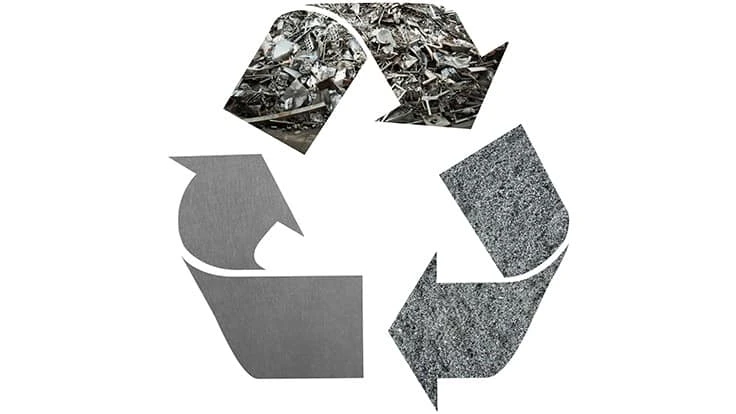
Image provided by Adobe Stock.
The London Metal Exchange (LME) has announced the first sustainability disclosures registered on the United Kingdom-based trading platform’s newly launched digital credentials register, LMEpassport.
Nine metals producers have listed disclosures under what the LME calls its “sustainability taxonomy,” which has been designed to cover environmental, social and governance (ESG) aspects of how branded metals on the LME are produced.
“We’re delighted to see key members of the metals community taking the opportunity to provide greater visibility of their sustainability credentials,” says Georgina Hallett, LME chief sustainability officer. “Transparency can help facilitate meaningful progress in important target areas, and we’re pleased to support our brands in their vital work to drive the sustainability agenda across all base metals.”
While recycled-content metals would seem poised to benefit from such credentials, the initial batch of companies and their credentialed metals are predominantly tied to mining and primary smelting activities.
Mining firms including Freeport-McMoran, Anglo American and Antofogasta and primary smelter operators including Rusal (aluminum), CBA (aluminum), Thaisarco (tin) and Huayou Cobalt comprise seven of the nine companies in the initial group.
On the recycling front, Canada-based Teck Resources Ltd. has earned sustainability credentials for its Teck Cominco smelter. According to the Teck website, the firm’s smelter in Trail, British Columbia, Canada, accepted more than 40,000 metric tons of recyclable materials as feedstock in 2019 to produce lead and zinc. That feedstock was predominantly lead-acid batteries but also cathode ray tube (CRT) monitor glass and zinc alkaline batteries.
Also receiving credentials was Sweden-based Boliden AB for four of its metals production plants. That firm has a large-scale electronics recycling plant that helps supply material to its Rönnskär copper smelter in Sweden.
Marcia Smith, a senior vice president with Teck Resources, says, “At Teck, we are committed to producing the essential metals and minerals that the world needs in an environmentally and socially responsible manner. The LMEpassport will further enhance transparency in the metals and minerals supply chain and strengthen consumer confidence.”
“Our ambition is to be the most climate-friendly and respected metal provider in the world, and we are happy to contribute to sustainability improvements in our sector as base metals play a crucial role in the transition away from fossil fuels in society,” remarks Mikael Staffas, a group CEO with Boliden.
Latest from Recycling Today
- BMW Group, Encory launch 'direct recycling’ of batteries
- Loom Carbon, RTI International partner to scale textile recycling technology
- Goodwill Industries of West Michigan, American Glass Mosaics partner to divert glass from landfill
- CARI forms federal advocacy partnership
- Monthly packaging papers shipments down in November
- STEEL Act aims to enhance trade enforcement to prevent dumping of steel in the US
- San Francisco schools introduce compostable lunch trays
- Aduro graduates from Shell GameChanger program





